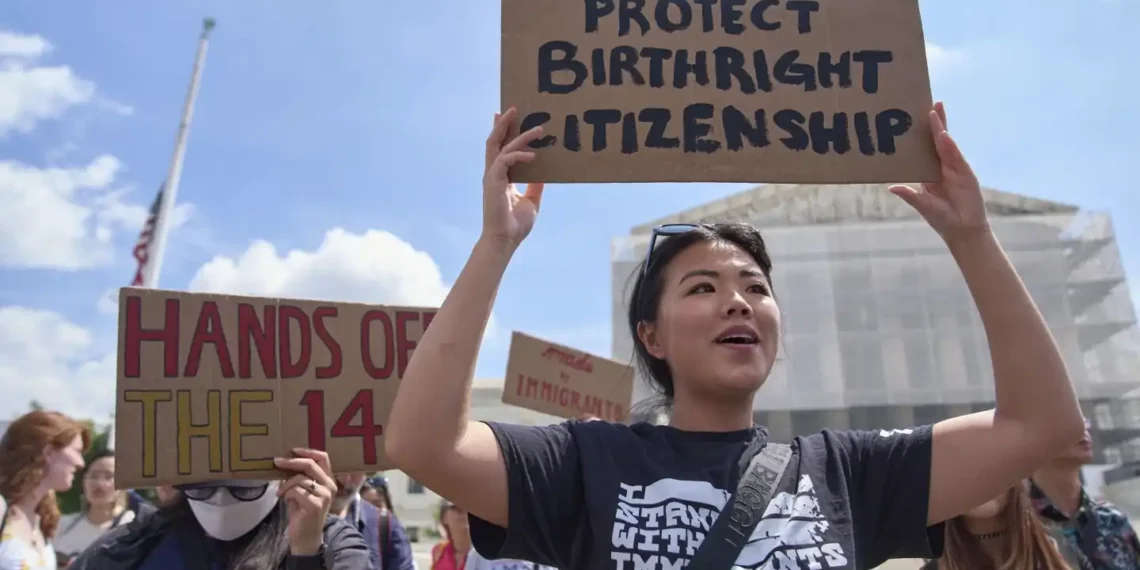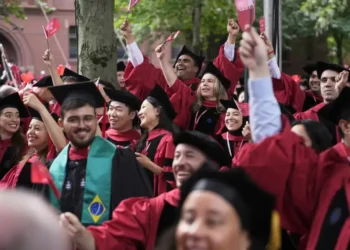FACT FOCUS: Trump Claims the U.S. Is the Only Country with Birthright Citizenship — It’s Not True
As the Supreme Court prepared to hear arguments on whether to allow President Donald Trump’s restrictions on birthright citizenship to take effect, he made a striking claim on Truth Social: that the United States is the only country in the world that grants citizenship simply by being born on its soil.
This claim is false.
Back on January 20, the first day of his second term, Trump signed an executive order aimed at denying citizenship to children born in the U.S. to parents who are here illegally or only temporarily. However, lower courts quickly blocked this order nationwide, and the administration is now appealing these decisions, challenging the authority of judges to issue such broad injunctions. Importantly, the Supreme Court has not yet ruled on whether the executive order itself is constitutional.
Let’s break down the facts.
Trump’s Claim vs. Reality
On Truth Social, Trump said:
“The United States of America is the only Country in the World that does this, for what reason, nobody knows.”
But the truth is quite different.
According to the CIA World Factbook and the Library of Congress, about 30 countries worldwide offer unconditional birthright citizenship, including Canada, Mexico, and many nations in Africa and Asia. The U.S. is far from unique in this regard.
“The statement is pretty obviously wrong,” says Ilya Somin, a law professor at George Mason University and expert on constitutional law and migration rights. “Many countries have birthright citizenship, though in some of them the rules differ from those in the U.S.”
What Is Birthright Citizenship?
Birthright citizenship is based on the principle of jus soli — Latin for “right of the soil.” It means that anyone born within a country’s borders automatically gains citizenship, regardless of their parents’ immigration status.
This contrasts with jus sanguinis, or “right of blood,” where citizenship depends on the nationality of one’s parents or ancestors.
In the U.S., birthright citizenship is nearly unconditional. Children born on American soil are citizens, except for two narrow exceptions: children of foreign diplomats and children of enemy soldiers occupying the country during wartime. Historically, Native Americans were excluded until the Indian Citizenship Act of 1924.
A Historical Foundation
Birthright citizenship was enshrined in the U.S. Constitution after the Civil War to guarantee citizenship for formerly enslaved people. The 14th Amendment, ratified in 1868, states:
“All persons born or naturalized in the United States, and subject to the jurisdiction thereof, are citizens of the United States and of the State wherein they reside.”
This Citizenship Clause overturned the infamous 1857 Dred Scott decision, which held that Black people — enslaved or free — could not be citizens. It was a monumental shift in American history, affirming citizenship rights regardless of race or parentage (with the limited exceptions noted).
Trump’s Executive Order Faces Legal Hurdles
Trump’s executive order attempts to restrict birthright citizenship in a way that conflicts with longstanding Supreme Court precedent, notably a decision from 1898 that confirmed the Citizenship Clause grants citizenship to all born on U.S. soil except in very specific, rare cases.
Currently, the Supreme Court is considering this case alongside other immigration-related appeals brought by the Trump administration.
What This Means
The U.S. is not unique in offering birthright citizenship — many countries around the world have similar policies. The ongoing legal battle will determine whether Trump’s effort to limit this constitutional right can move forward, but the claim that the U.S. stands alone on this issue is simply wrong.
As the debate unfolds, understanding the history and facts behind birthright citizenship helps cut through the political rhetoric and misinformation.
This article was rewritten by JournosNews.com based on verified reporting from trusted sources. The content has been independently reviewed, fact-checked, and edited for accuracy, neutrality, tone, and global readability in accordance with Google News and AdSense standards.
All opinions, quotes, or statements from contributors, experts, or sourced organizations do not necessarily reflect the views of JournosNews.com. JournosNews.com maintains full editorial independence from any external funders, sponsors, or organizations.
Stay informed with JournosNews.com — your trusted source for verified global reporting and in-depth analysis. Follow us on Google News, BlueSky, and X for real-time updates.











